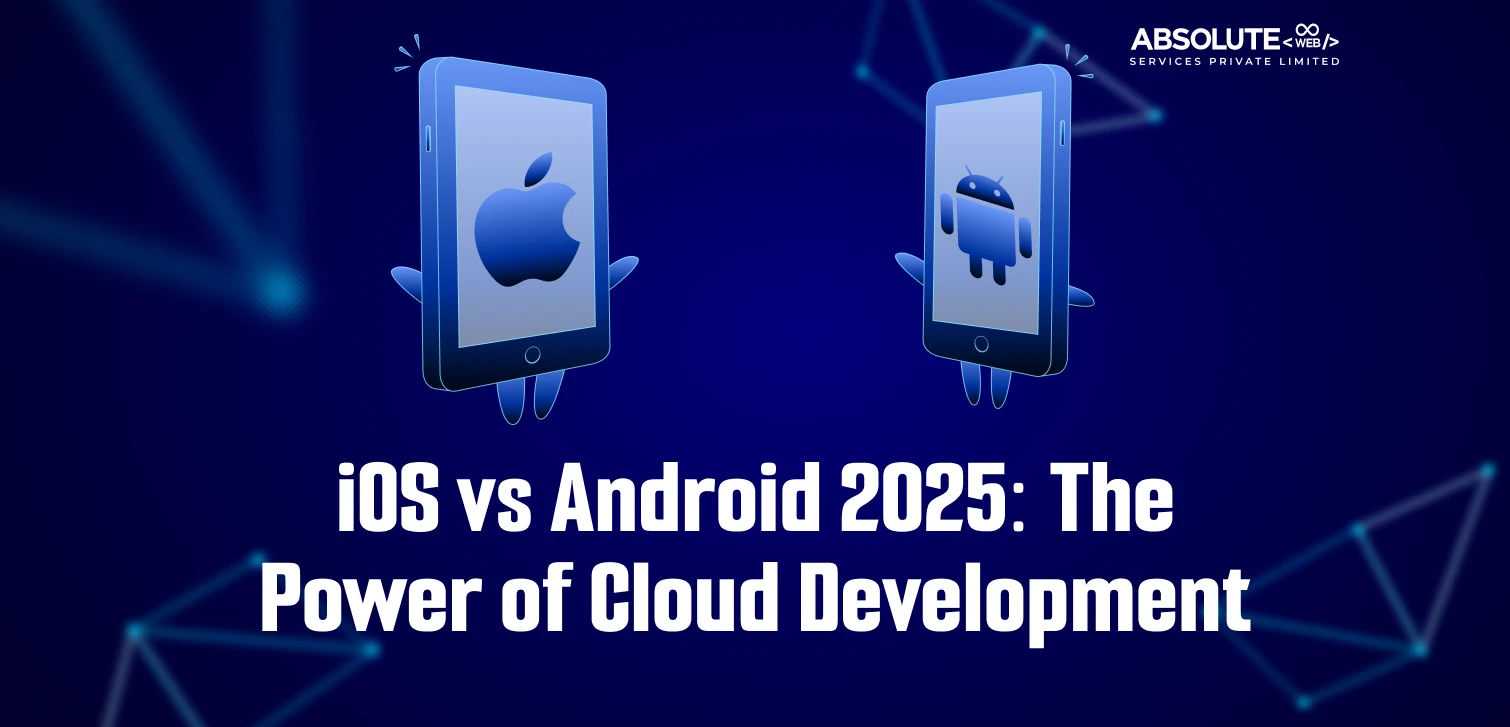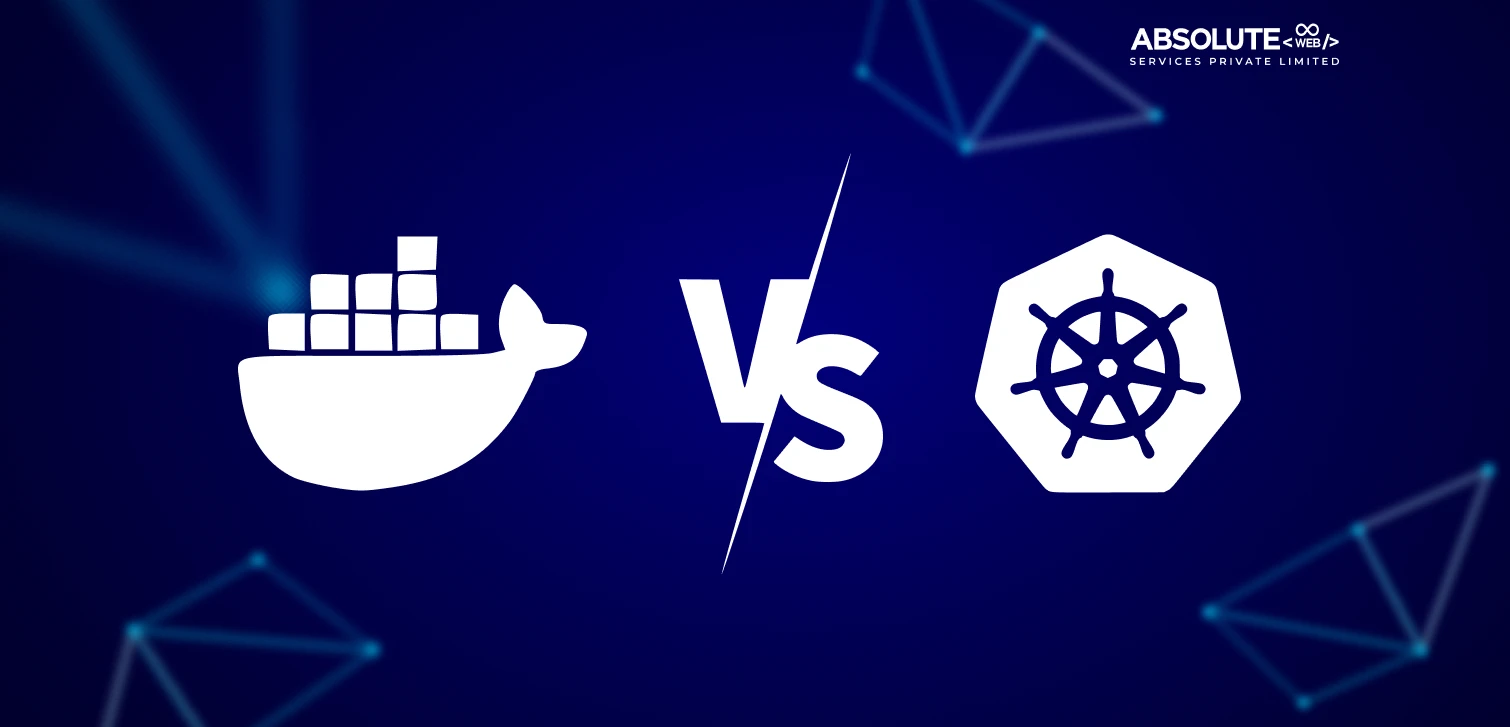Why Should We Care About iOS vs Android in 2025?
As a software development company, Absolute Web constantly evaluates the platforms that drive the digital world. Over the years, iOS and Android have been the titans of mobile development. By 2025, their ecosystems have grown even larger, fueled by advancements in cloud computing. But why does this rivalry matter to businesses, developers, and users like us?
Mobile apps are no longer standalone pieces of software; they are connected, data-driven ecosystems. The integration of cloud development has become a critical factor for scalability, performance, and cost-efficiency. By understanding the differences between iOS and Android in cloud development, we can help businesses make informed decisions that align with their goals.
Let’s dive into the details and explore how these platforms leverage cloud technologies to create impactful experiences.
What Is the Role of Cloud Development in Modern Mobile Apps?
Cloud development has transformed the way we approach mobile app design and functionality. Today, apps rely on cloud services to:
- Store and Sync Data: Think of apps like Google Drive or iCloud. Cloud-based solutions ensure data is accessible across devices.
- Enable Scalability: High-demand apps can handle millions of users with minimal latency thanks to cloud servers.
- Enhance Collaboration: Apps like Slack or Microsoft Teams rely on cloud platforms for real-time collaboration.
- Support AI and Machine Learning: Many modern apps integrate AI, which requires cloud-based computation power.
Whether you’re a business owner or a developer, the cloud’s role in mobile app development can no longer be ignored.
How Does iOS Compare to Android in Cloud Integration?
iOS Cloud Development in 2025
Apple’s ecosystem is built around seamless integration. Its proprietary cloud platform, iCloud, has evolved significantly to cater to both users and developers.
Advantages of iOS Cloud Integration:
- Unified Ecosystem: Apple’s tight hardware-software integration ensures consistent cloud performance across all devices.
- iCloud Services: With features like CloudKit, developers can easily integrate cloud-based data storage and syncing.
- Privacy-First Approach: Apple’s emphasis on privacy ensures that user data is secure and compliant with global standards like GDPR.
Statistics:
- Market Share: By 2025, Apple devices account for approximately 29.2% of global smartphone usage. While not the largest share, iOS users typically spend 2.5x more on apps compared to Android users.
- Cloud Usage: 85% of iOS apps rely on some form of iCloud integration.
Limitations:
- Higher development costs due to Apple’s proprietary standards.
- Limited flexibility compared to open-source alternatives.
Android Cloud Development in 2025
Android, backed by Google’s ecosystem, offers unparalleled flexibility and scalability. Google Cloud Platform (GCP) plays a central role in Android’s cloud integration.
Advantages of Android Cloud Integration:
- Open-Source Flexibility: Developers have the freedom to customize apps to meet specific business needs.
- Google Cloud Platform: GCP provides robust tools for app hosting, AI integration, and real-time data syncing.
- Global Reach: Android’s market share of 70.8% makes it the go-to platform for targeting diverse demographics.
Statistics:
- Adoption Rate: By 2025, over 90% of Android apps use Google Cloud for storage and processing.
- Scalability: Android apps handle 35% more active users compared to their iOS counterparts due to broader device availability.
Limitations:
- Fragmentation remains a challenge, with over 24,000 different Android devices on the market.
- Security concerns due to the open-source nature of the platform.
Which Platform Is Better for Businesses?
As a software company, we’re often asked by clients: Which platform should we invest in for cloud development?
iOS: Best for Premium Experiences
If your business targets high-income users or prioritizes privacy and security, iOS is an excellent choice. Its closed ecosystem ensures high performance and user satisfaction.
Android: Best for Global Reach and Flexibility
For businesses aiming to reach a larger, diverse audience, Android’s flexibility and market share make it the ideal platform. The open-source nature allows for tailored solutions that meet unique business needs.
Cloud Costs Comparison:
- iOS: On average, cloud costs for iOS apps are 20% higher due to Apple’s proprietary tools and compliance requirements.
- Android: Offers lower costs with pay-as-you-go options through GCP, making it suitable for startups and small businesses.
What Do Developers Think About Cloud Development on iOS and Android?
From a developer’s perspective, cloud integration is one of the most exciting yet challenging aspects of modern app development.
iOS Developer Insights:
- Apple’s tools, like Swift and CloudKit, are praised for their ease of use.
- However, the closed ecosystem can be restrictive for developers used to open-source platforms.
Android Developer Insights:
- The flexibility of Kotlin and Java, combined with Google Cloud’s robust APIs, makes Android development highly customizable.
- Fragmentation and device testing remain significant hurdles.
Developer Trends in 2025:
- 65% of developers report that cloud services reduce development time by 30%.
- 80% of businesses prefer cloud-first app strategies, regardless of platform.
How Can We Leverage Cloud Development for Your Business?
At Absolute Web, we’ve helped businesses navigate the complexities of iOS and Android cloud development. Here’s how we approach projects:
- Understand Your Audience: We analyze your target market to recommend the best platform for your goals.
- Cloud Strategy: We design a cloud-first architecture that ensures scalability, performance, and cost-efficiency.
- Seamless Integration: Our team integrates cloud services, such as data syncing, analytics, and AI, into your app.
- Ongoing Support: We provide continuous monitoring and updates to ensure your app remains competitive.
Which Platform Should We Choose for 2025 and Beyond?
The choice between iOS and Android depends on your business goals, budget, and target audience. While iOS offers a premium experience, Android excels in global reach and flexibility. By leveraging cloud development, both platforms can deliver exceptional app performance and user satisfaction.
At Absolute Web, we specialize in both iOS and Android cloud development. Whether you’re building a new app or enhancing an existing one, our expertise ensures that your project aligns with the latest trends and technologies.
Ready to take your app to the next level? Let’s discuss how we can bring your vision to life.


